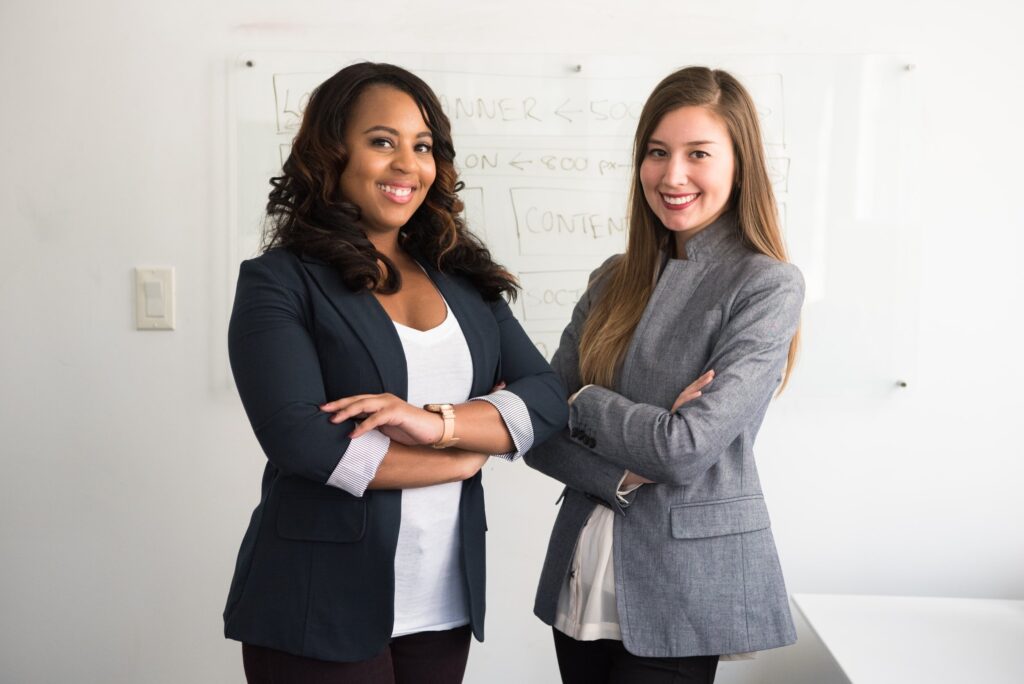VBQ Speakers has conducted a survey to examine perceptions of diversity in the UK workplace.
The research, which polled 1000 UK adults in employment, analysed perception about a range of issues including:
- The representation of women in entry-level and senior positions
- How multiple factors, such as sex, age, race, religion, disability, gender identity and sexual orientation, intersect to impact opportunities in the workplace
- The reporting of discrimination in the workplace
Under-representation of women in the workplace

One of the key findings of this research relates to the representation of women in the UK workplace. Half (50%) of those polled agreed that women are under-represented in senior management roles at their current workplace, with 51% of women and 47% of men agreeing.
But this finding becomes more complex when the data is broken down by age range. 52% of 18-24 year olds, 66% of 25-34 year olds and 58% of 35-44 year olds agreed that women are under-represented at their current workplace in senior management roles. But this figure falls to 43% for 45-54 year olds and just 34% for over 55s.
The issue of under-representation was found to be slightly less problematic in relation to entry level roles. 38% of those polled (35% of women and 41% of men) believe women are underrepresented in entry-level roles at their workplace.
But again, we see discrepancies in responses between different age groups. The analysis found that 42% of 18-24 year olds, 53% of 25-34 year olds and 56% of 35-44 year olds agreed women are under-represented at their workplace in entry-level roles. But these numbers fell to 31% for 45-54 year olds and 22% for over 55s.
How additional factors impact opportunities for women in the workplace

The consumer research also sought to explore perceptions around how opportunities for women are impacted by additional factors such as age, race, religion, disability, gender identity or sexual orientation.
We found that a large proportion – 37% – of those polled agreed that opportunities had been negatively affected by such additional factors, with the numbers being about the same for women (36%) and men (37%). But again, we see a marked difference in the responses when broken down by age group.
Almost half (49%) of 18-24 year olds believe that opportunities for women at their workplace have been negatively impacted by these additional factors. This figure rises to 53% of respondents for 25-34 year olds, and is 43% for 35-44 year olds. The numbers then drop off sharply, with 31% for 45-54 year olds and 21% for over 55s.
Reporting discrimination in the workplace

The majority of UK adults surveyed as part of this research reported that they would feel comfortable reporting discrimination at their organisation.
Over half (55%) would be happy to do so, with only 18% saying they would not.
However, the data differed significantly between men and women, with 61% of men and just 49% of women saying they’d feel comfortable reporting discrimination.
The proportion of those willing to report discrimination at their workplace remained remarkably constant across age ranges (18-24: 53%, 25-34: 54%, 35-44: 56%, 45-54: 56%, >55: 53%).
However, younger respondents were more likely to say they would not feel comfortable reporting discrimination. For 18-24 year olds this number was 34%, dropping off steeply to 22% for 25-34 year olds. The proportion saying they would not feel comfortable reporting discrimination was 19% for 35-44 year olds, 15% for 45-54 year olds, and 14% for over 55s.
While many UK workplaces now have clear procedures for reporting discrimination, only 58% of those polled thought their organisation had clear processes, with not much difference between women (55%) and men (60%). There was a bigger difference in perception between age ranges. Only 49% of 18-24 year olds believe their organisation’s processes are adequate, with the figure rising to 61% for over 55s.
This consumer research provides some interesting findings about perceptions of diversity in UK workplaces. In particular it suggests that age plays a significant role in people’s assessment of diversity, and that women and men have different experiences of diversity in their organisation as well.
Diversity and inclusion in the workplace, or the lack thereof, is thankfully climbing ever higher on organisations’ agendas. If you’re interested in going further to help tackle issues like these in your own company, take a look at some of our expert speakers on Women In Business and Diversity & Inclusion.
